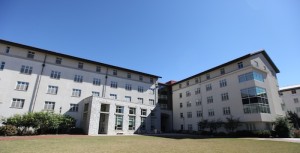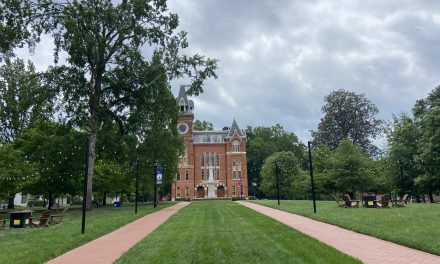The year 2020 was nothing short of tumultuous and unprecedented. Beginning with the pandemic, racial uprisings, where Black Americans nationwide stood in solidarity as they protested the deeply-rooted injustices that had afflicted their communities, followed closely behind.
The need for support and sisterhood during such difficult times gave rise to Emory University’s first Black Women’s Initiative (BWI) floor, said Director of the Center for Women Chanel Tanner.
BWI is a collaborative effort with the Office of Residence Life, Center for Women and Office of Race. According to Emory Housing, the floor was constructed as a space where Black women could aspire to “articulate a version of self-authorship” and “cultivate their own internal voice.”
Due to pandemic restrictions, BWI started as a six-member virtual endeavor. The initiative stemmed from Emory College upperclassmen who expressed a need for more support for Black women on campus, Tanner said.
The return to campus this year was the first trial run for the program’s residential and community aspects.
Becoming a member of the floor was simple: Residential Life Immersion Community emailed incoming students an application asking whether they would be interested in joining BWI and their intended contributions to the program.
“It’s really uniquely designed for the specific needs we saw amongst our undergraduate Black women’s community,” Tanner said. “A lot of it had to do with their ability to thrive on campus. They don’t always feel like they belong here, and they’re not always able to thrive and flourish … How do we get them what they need?”
Black women remain underrepresented at the University. The number of Black women enrolled in Emory College has ranged between 71 to 92 students per first-year class between 2010 and 2020, according to Assistant Vice Provost Justin Shepherd. Black women first-years made up only 5.1% of the class of 2024.
Tanner said that BWI brings together an intergenerational community of Black women with a wide range of life experiences, forming a close-knit family that allows them to discuss topics relevant to Black women in current events, pop culture and media.
“The community is really great, just having people you can relate to,” said sophomore advisor on the floor Joju Olojede (24C). “They’re always hanging out with each other or studying together, and they’re all really good friends.”
Eagle Hall Complex Director Chelsea Appiah leads the residential education component of the initiative. She emphasized the geographic diversity of the group, noting that some students came from Georgia and Philadelphia while others came from the Caribbean and Nigeria.
“We were very cognizant to make sure that we had different class dynamics and that there were students in the group who identify as multiracial,” Tanner said. “Though it’s a Black womens’ cohort, a part of it is also about asking what it even means to be a Black woman.”

Longstreet-Means Hall. (Jason Oh)
At its core, the initiative aims to help women define themselves inside and outside of college life. The group touches on subjects such as holistic time management, dating, and friendships, and encountering rigorous academic challenges for the first time.
All students living on the floor participate in the same Emory Edge course, taught by Director of the Office for Racial and Cultural Engagement LaNita Campbell. Additionally, a planning committee helps supplement students’ academic learning by providing knowledge of available opportunities on campus.
The focus of the pilot program is specifically for first-year students on the Atlanta campus. Before looking to expand the program by assisting in the Oxford-Atlanta transition, the staff at BWI need to continue figuring out institutional support and logistics, and then reevaluate to see if they want to offer other programs.
The outlook is positive so far, however, as the program’s pre-orientation program received overwhelmingly affirming feedback.
“We hope that through having really intentional conversations with them — how to make intentional decisions about their college career — that they have a thriving experience at Emory,” Appiah said.
Three students currently living on the floor were contacted for an interview, but none responded.
Ashley Zhu (she/her) (25C) is from Dallas, Texas, majoring in biology and minoring in sociology. She is the vice president of recruitment for the Residence Hall Association, a sophomore advisor for Raoul Hall and a staff writer for the Emory Undergraduate Medical Review. She is involved in cell biology research at the Pallas Lab and is a BIOL 141 Learning Assistant. Zhu enjoys FaceTiming her dog, stalking people's Spotify playlists and listening to classical music in her free time.






